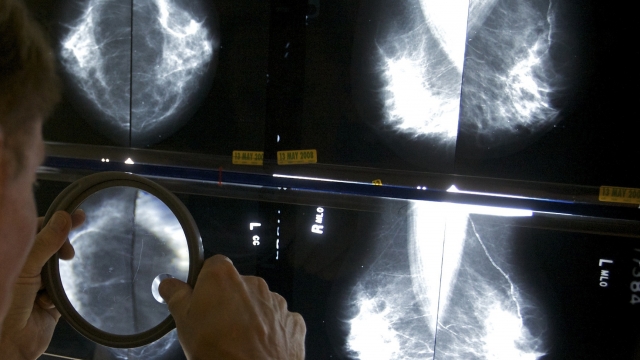The recommended age for a mammogram just got 10 years younger.
"All women should be screened for breast cancer every other year starting at age 40," said Dr. Carol Mangione, chief of general internal medicine at UCLA.
The U.S. Preventative Services Task Force is drafting new recommendations. It also suggests women get screened for breast cancer once every other year. It says the screenings can save more lives and catch cancers in earlier stages. But some doctors think it's not frequent enough.
"The issue really depends on the interval between the screening, and the task force recommends every other year, but that just allows the cancers to get a little big larger, potentially becoming untreatable, and that could lead to more deaths," said Dr. Sarah Friedewald, chief of breast imaging at Northwestern Medicine.
She adds the new screening recommendations are for women who are at average risk for breast cancer. So what does "average" mean?
SEE MORE: Spice May Help Fight Aggressive Form Of Breast Cancer
That's determined by a risk assessment, which includes a doctor looking at history and testing for specific gene mutations, like BRCA1 or BRCA2.
The American College of Radiology and Society of Breast Imaging say women should get risk-assessed when they're 25 or older.
"It seems very young, but there are definitely women around that time period if they're high risk that can develop breast cancer. Only about 60% of women in the United States have reported to have a mammogram within the past two years. That is not enough," Friedewald said.
Experts say the new recommendations are particularly important for Black women. Black women are more likely to develop more advanced-stage breast cancer at a younger age.
"Black women are 40% more likely to die from breast cancer than white women if they get it. They are also more likely to get more aggressive forms of breast cancer," Mangione said.
"So we need to get the word out, educate our patients, particularly the Black women in our communities, to make sure that they get screened," Friedewald said.
Trending stories at Scrippsnews.com



